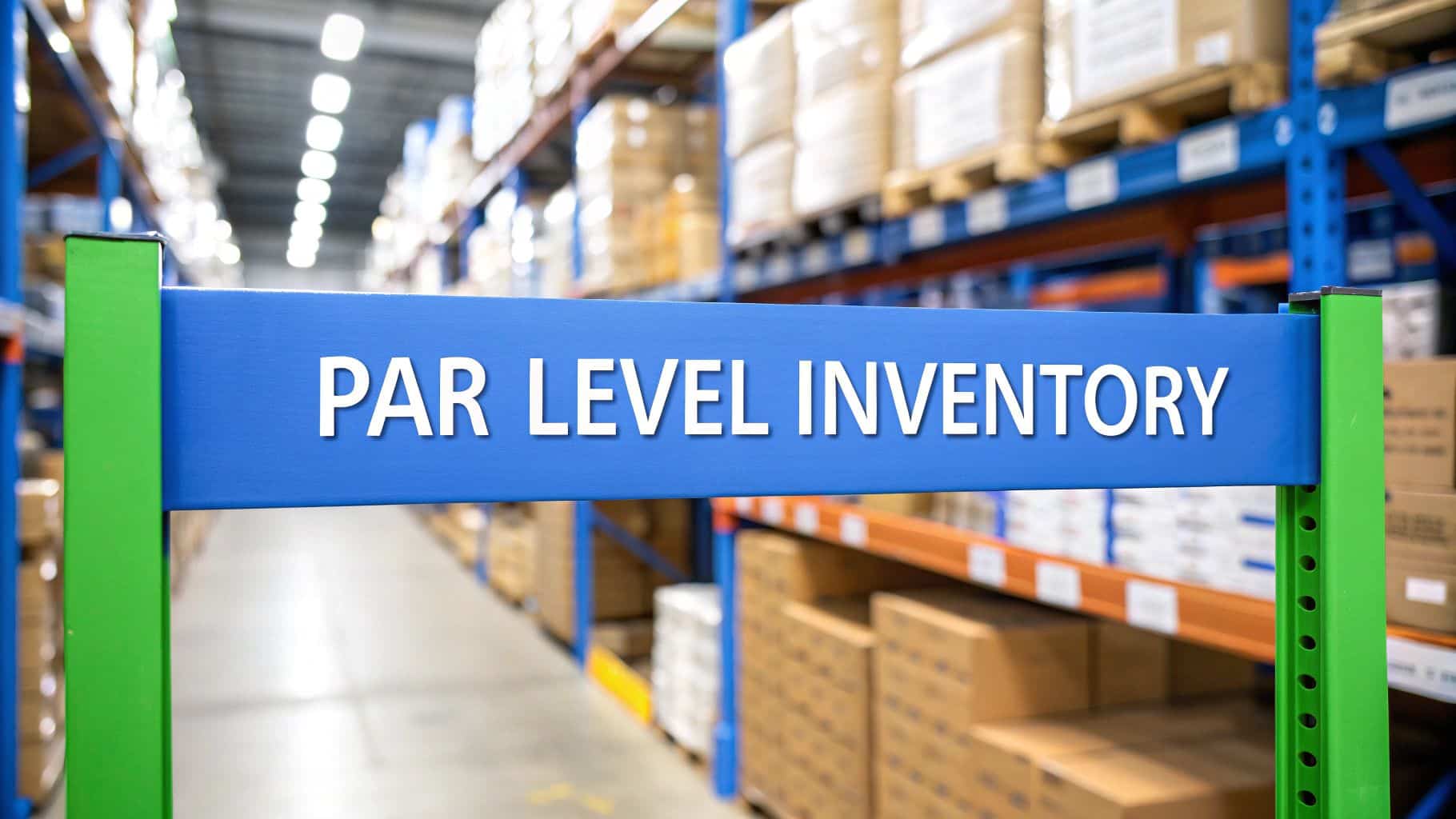Obtaining a food handlers permit Tennessee is essential for anyone working in the food service industry within the state. Whether you’re a restaurant worker, caterer, or part of a food truck crew, this permit ensures that you understand and follow important food safety practices that protect both customers and businesses. This comprehensive guide walks you through everything you need to know about getting certified, complying with Tennessee’s food safety regulations, and keeping your workplace safe and legal.
Table of Contents
- Overview of the Food Handlers Permit in Tennessee
- Obtaining Your Food Handlers Permit Tennessee
- Food Safety Certification Requirements
- Renewal and Compliance Rules
- Importance of Restaurant Staff Training
- Biyo POS for Food Service Businesses
- FAQ
Overview of the Food Handlers Permit in Tennessee
Understanding the food handlers permit Tennessee is the first step in ensuring you meet the state’s legal requirements for working with food. The permit is a certification that verifies an individual has completed a food safety course approved by the Tennessee Department of Health. This certification focuses on educating food handlers about proper hygiene, sanitation, and methods to prevent foodborne illnesses.
The permit plays a crucial role in protecting public health. Foodborne illnesses can spread rapidly if food is mishandled, so Tennessee enforces these regulations to keep its food industry safe. Whether you work in a large restaurant chain or a small local café, having this permit is often mandatory before you can legally prepare or serve food.
Additionally, the food handlers permit acts as a standard measure for employers to assess the food safety knowledge of their staff. It builds trust with customers and health inspectors alike, signaling that your establishment values safe food handling practices.
What Is a Food Handlers Permit?
A food handlers permit Tennessee is an official document provided after completing a state-approved food safety training and passing a certification exam. This permit confirms you understand Tennessee’s food handling requirements, including hygiene regulations and sanitation guidelines.
The training covers important topics such as cross-contamination prevention, safe cooking temperatures, and proper storage methods. For example, food handlers learn that raw meats must be stored below ready-to-eat foods in refrigerators to avoid contamination through drips or spills. The course also emphasizes the importance of wearing gloves correctly and changing them regularly to prevent bacteria transfer.
Holding this permit is legally required in many Tennessee counties for food service employees. Employers rely on these certifications to maintain compliance with the Tennessee health department’s standards and to pass health inspections smoothly. Without this permit, food handlers cannot legally work in most food establishments, underscoring its importance.
Who Needs a Food Handlers Permit in Tennessee?
In Tennessee, anyone involved in the preparation, storage, or service of food generally needs a food handlers permit Tennessee. This includes chefs, cooks, waitstaff, dishwashers, and catering employees. The rules apply to various food service settings such as restaurants, schools, hospitals, and mobile food vendors. For instance, even if you only work as a cashier who occasionally handles food items, many counties still require certification.
However, some exemptions exist. For example, volunteers at short-term community events or farmers market vendors who sell only prepackaged foods may not need the permit. Yet, it is always safest to check with your local health department to confirm whether your specific role or event requires certification. These exemptions are often narrowly defined and vary by locality.
Food handlers are expected to carry their permit or food worker card while working. This not only proves compliance but also helps during health department inspections to verify that all food service employees are certified. Businesses often maintain copies of all employee permits as part of their health inspection records.
How Does the Food Handlers Permit Protect Consumers?
The core goal of the food handlers permit Tennessee is to prevent foodborne illness outbreaks by educating food workers. Proper food safety certification ensures employees know how to avoid contamination and maintain clean work environments. For example, understanding how to properly wash hands and the appropriate time to do so prevents the spread of harmful bacteria like Salmonella or E. coli.
Foodborne illnesses can cause severe health problems and even lead to legal consequences for businesses. Training helps food handlers recognize risks such as improper food temperatures, poor handwashing techniques, and unsafe food storage. For example, the course explains how foods must be cooked to specific internal temperatures—such as poultry to 165°F—to ensure harmful pathogens are killed.
By requiring a permit, Tennessee ensures that food service establishments uphold hygiene regulations and sanitation guidelines consistently. As a result, customers can trust that their food is prepared safely and responsibly. This trust not only protects public health but also enhances the reputation of food businesses that prioritize food safety.

Obtaining Your Food Handlers Permit Tennessee
Getting your food handlers permit Tennessee involves a few straightforward steps. With multiple options for training and certification, Tennessee makes the process accessible for all food industry workers. Taking the time to complete these steps carefully will help you comply with legal requirements and foster safer food handling practices.
This section details how to apply for the permit, the types of courses available, and the requirements you need to fulfill to receive certification.
Step-by-Step Permit Application Process
The first step in obtaining your food handlers permit Tennessee is to enroll in an approved food safety course. These courses can often be completed online, providing flexibility for busy workers. You’ll need to select a course recognized by the Tennessee Department of Health, which ensures the curriculum meets state standards.
Once you complete the course, you must pass a certification exam. This exam tests your knowledge of food safety principles and Tennessee’s specific regulations. Many online programs allow you to take the exam immediately after finishing the coursework. The exam format usually includes multiple-choice questions covering topics like handwashing techniques, temperature control, and cross-contamination.
After successfully passing the exam, you will receive your food handlers permit or food worker card. Depending on the provider, you may get a physical card, a printable certificate, or both. Remember to keep this documentation handy while working, as health inspectors may request to see it during routine visits or when complaints arise.
Types of Food Safety Training Courses Available
Tennessee offers a variety of food safety certification courses tailored to different learning preferences and work environments. Online training programs are popular since they allow learners to study at their own pace without scheduling conflicts. These courses often use interactive tools such as videos, quizzes, and real-life scenarios to enhance understanding.
These courses cover essential topics such as safe food handling practices, personal hygiene, preventing contamination, and complying with Tennessee food code compliance. For example, some courses use case studies to illustrate how improper storage led to a foodborne illness outbreak, reinforcing the importance of following guidelines.
In-person training options are available in some counties, often hosted by local health departments or community colleges. These sessions provide direct access to instructors and opportunities to ask questions. In-person courses sometimes include hands-on demonstrations, like proper glove use and cleaning techniques, which can be especially helpful for visual learners.
Understanding the Permit Application Fees
The cost for obtaining a food handlers permit Tennessee varies depending on the course provider and location. Online courses generally range from $10 to $20, making it an affordable requirement for most workers. This fee usually covers course materials, exam administration, and issuance of the permit.
Some employers may cover the cost of certification for their staff as part of employee training programs. This investment helps businesses ensure compliance while supporting employee development. For example, a restaurant may reimburse the course fee after successful completion to encourage participation.
Additionally, certain local health departments may provide discounted or free training options to encourage compliance, particularly in underserved areas or for small businesses. Always research available resources in your community to minimize costs without compromising quality. Be cautious when selecting a training provider—always verify that the course is recognized by the Tennessee health department to avoid wasting time and money on invalid certifications.
Food Safety Certification Requirements
Meeting Tennessee’s food safety certification requirements is key to receiving and maintaining your food handlers permit. These standards ensure all certified workers possess the necessary knowledge to handle food safely and reduce the risk of contamination. Understanding these requirements thoroughly prepares you for both certification and practical application on the job.
This section explores the specific certification criteria, exam details, and what you must know to comply with state regulations.
Mandatory Topics Covered in Certification Courses
Courses approved for the food handlers permit Tennessee focus on several core topics required by the Tennessee health department. These include proper handwashing techniques, avoiding cross-contamination, temperature control, and sanitation guidelines. For instance, the training explains the importance of washing hands before starting work, after handling raw food, and after using the restroom.
For example, proper handwashing involves scrubbing all parts of the hands with soap and warm water for at least 20 seconds, followed by drying with a clean towel. The courses also teach when and how to use gloves correctly, emphasizing that gloves are not a substitute for handwashing but an added barrier.
Additionally, courses discuss how to recognize symptoms of foodborne illnesses and the importance of staying home when sick. Employees learn that working while experiencing vomiting, diarrhea, or fever risks contaminating food and exposing customers to illness, which can lead to serious outbreaks and legal penalties.
The Certification Exam Format and Passing Criteria
To earn the food handlers permit, you must pass a certification exam that tests your knowledge of safe food handling practices and Tennessee’s specific requirements. The exam typically consists of multiple-choice questions based on the course content. For example, questions may ask you to identify the safe cooking temperature for ground beef or the correct procedure for cleaning a cutting board after raw chicken contact.
Most exams require a passing score of around 70% or higher. You can often retake the exam if you don’t pass on the first try. This flexibility encourages mastery of the material rather than simple memorization. Retaking the exam may involve reviewing sections where mistakes were made to strengthen understanding.
After passing, your certificate or permit is issued and becomes valid for a designated period, commonly two to three years depending on local regulations. Keeping track of the expiration date and scheduling timely renewals is critical to maintaining your ability to work legally in the food service industry.
Legal Requirements and Local Regulations to Keep in Mind
The food handlers permit Tennessee is governed by a combination of state and local health codes. While the Tennessee Department of Health sets general food handling requirements, counties and cities may enforce additional rules. For example, some counties require certification for all food service employees, whereas others only mandate it for those handling potentially hazardous foods.
It’s important to verify the specific rules that apply to your workplace to remain compliant. Local health departments often provide detailed guidance on their websites or during health inspections. Failing to meet local regulations can lead to fines, forced closures, or legal action against your business.
Health inspections regularly check for valid permits and adherence to sanitation guidelines. Businesses are encouraged to maintain up-to-date records of employee certifications and to provide refresher training whenever regulations change or new staff are hired. Staying informed about changes in Tennessee food code compliance helps avoid unexpected violations.
Renewal and Compliance Rules
Maintaining your food handlers permit Tennessee is just as important as obtaining it. The state requires periodic renewal and ongoing compliance with food safety rules to ensure the highest standards in food service. Failing to renew or follow regulations jeopardizes public health and can cause significant setbacks for your career or business.
This section outlines how to renew your permit, stay updated with changing regulations, and handle health inspections with confidence.
How Often Do You Need to Renew Your Permit?
Food handlers permits in Tennessee usually expire every two to three years, depending on local regulations. Before your permit expires, you must complete a renewal process that often includes retaking the food safety course and passing a certification exam again. This requirement ensures you stay current with any updates to food safety standards and practices.
Renewing your permit ensures you stay current with any updates to Tennessee food code compliance and reinforces critical food handling practices. It also helps you maintain legal eligibility to work in the food industry. Employers often track employee permit expiration dates and may provide reminders to complete renewals promptly.
To avoid lapses in certification, mark your renewal dates on a calendar or use reminders. Working without a valid permit can lead to penalties for both you and your employer. Some businesses suspend food service duties until employees provide proof of valid certification to avoid violations during health inspections.
Staying Compliant with Health Inspections
Health inspections are routine in Tennessee food establishments, focusing heavily on whether all employees have valid food handlers permits. Inspectors review your food service license, employee certifications, and adherence to hygiene regulations. Inspections typically include observing food preparation, storage conditions, and sanitation practices.
During an inspection, being able to present your food worker card or permit promptly shows your commitment to safety. It also minimizes inspection time and potential disruptions to business operations. For example, health inspectors may check a sample of employee permits to confirm everyone is certified, so it’s best to keep copies organized and accessible.
To prepare, regularly review sanitation guidelines with your team and encourage open communication about food safety concerns. Ongoing training and refresher courses can help maintain a culture of compliance. Businesses that engage staff in food safety discussions often experience fewer violations and improved customer satisfaction.
Consequences of Non-Compliance
Failing to obtain or renew a food handlers permit Tennessee can have serious consequences for both workers and food service establishments. These may include fines, suspension of food service licenses, or forced closure by the health department. Such actions can be costly and damage a business’s reputation for years.
Individual employees might face disciplinary action or job termination if they don’t comply with certification requirements. For example, working without a valid permit could lead to removal from food preparation duties or even legal penalties if negligence results in illness outbreaks.
Therefore, staying proactive about certification and compliance is vital. It protects your health, supports your employer, and ensures your food service environment remains safe for all. Employers should encourage a team approach to compliance, making food safety a shared responsibility.
Importance of Restaurant Staff Training
Beyond simply obtaining a food handlers permit Tennessee, continuous restaurant staff training is critical to maintaining high food safety standards. Ongoing education helps prevent lapses in hygiene and keeps the entire team informed about the latest best practices. Training fosters habits that protect customers and build business trust.
This section highlights why regular training matters and how businesses can implement effective programs for their staff.
Creating a Food Safety Culture
Regular training encourages a culture of food safety that goes beyond mere compliance. When all staff members understand why hygiene regulations and sanitation guidelines matter, they are more likely to take responsibility for safe food handling every day. For example, a chef who understands the risks of cross-contamination will take extra care when handling raw meats and fresh produce.
This culture reduces mistakes like cross-contamination or improper cooking temperatures, which are common causes of foodborne illness outbreaks. Staff members who see safety as a priority tend to work more carefully and communicate better about risks. For instance, servers trained to recognize signs of illness in kitchen staff can help prevent sick employees from handling food.
Leaders who champion ongoing education foster an environment where employees feel empowered and accountable, leading to stronger team cohesion and customer confidence. Businesses often see improvements in employee morale and reduced turnover when training is valued and supported.
Benefits of Online Training Programs for Staff
Online training programs make it easy for restaurant owners to provide consistent education to their employees. These platforms allow staff to complete food safety courses anytime, fitting training around busy schedules without disrupting operations. This flexibility increases participation and knowledge retention.
Many online courses include interactive features and up-to-date content aligned with Tennessee food handling requirements. Employers can track progress and ensure everyone has current certification. For example, managers can generate reports showing which employees have completed training and who requires follow-up.
Such flexibility and accessibility result in better knowledge retention, increased compliance, and fewer health inspection issues. It also saves costs compared to in-person training sessions, as there are no travel or venue expenses. Staff can review materials multiple times, reinforcing important concepts.
How Biyo POS Supports Food Safety Compliance
Biyo POS goes beyond point of sale functions by integrating tools that help restaurants manage compliance and training. With Biyo POS, you can track employee certifications, schedule reminders for permit renewals, and access food safety resources directly within the system. This feature centralizes compliance management, making it easier to stay organized.
This all-in-one platform helps your business stay aligned with Tennessee health department regulations by providing timely alerts and easy access to training materials. For example, Biyo POS can notify managers weeks before an employee’s permit expires, allowing for smooth renewals without disruption.
By partnering with Biyo POS, food service businesses gain a reliable technology ally focused on safety and efficiency, allowing managers and staff to focus on delivering quality service. The system also supports sanitation schedule tracking, helping to maintain a consistently clean environment essential for food safety.
Biyo POS for Food Service Businesses
Technology plays a key role in modern food service operations. Biyo POS offers a powerful, easy-to-use system designed specifically for restaurants, cafes, and food trucks in Tennessee that want to maintain compliance while enhancing their daily workflow. Its features address both operational and regulatory challenges.
Here’s how Biyo POS can help your business stay ahead with food safety and permit management.
Integrated Permit and Certification Management
Biyo POS includes features that allow managers to record and monitor food handlers permits and employee certifications all in one place. This centralized system makes it simple to verify who has completed required training and who needs renewal reminders. For example, managers can upload digital copies of permits and track expiration dates automatically.
Using automated alerts, Biyo POS ensures no permit expires unnoticed, keeping your workforce fully certified and your business compliant with Tennessee health codes. This proactive approach saves time and prevents costly inspection failures that might result from expired permits.
Moreover, detailed reporting helps during health inspections by providing instant access to food safety certification records for all staff members. This quick access can reduce inspection time and improve the establishment’s credibility.
Streamlined Staff Training Support
Beyond permit tracking, Biyo POS supports staff training efforts by integrating with approved online food safety courses. Managers can assign training modules, track completion rates, and identify employees needing additional education directly through the platform. This integration helps ensure consistent compliance across the team.
This seamless training workflow promotes consistent knowledge across your team, reducing risks associated with food handling mistakes. The system encourages ongoing learning that aligns with Tennessee’s food safety certification standards, making renewals and updates straightforward.
By making training management part of everyday operations, Biyo POS helps restaurants maintain a high standard of food safety effortlessly. It also fosters employee engagement by showing a clear commitment to their professional development.
Boosting Operational Efficiency and Compliance
Using Biyo POS improves overall operational efficiency, which indirectly supports better food safety compliance. With fast, accurate order processing and inventory tracking, staff can focus more on hygiene and proper food handling instead of juggling paperwork. This focus reduces errors and contamination risks.
The platform also assists with sanitation schedules and health inspection preparations by reminding managers about critical tasks. For example, Biyo POS can prompt cleaning of food prep surfaces at recommended intervals, helping to maintain consistent sanitation standards.
By choosing Biyo POS, you invest in a future-ready solution that combines technology and compliance to keep your business safe and successful. Its user-friendly interface and comprehensive features make it an ideal choice for Tennessee food service businesses aiming to excel in safety and customer service.

Biyo POS: Your Partner in Food Safety and Business Success
For Tennessee food service businesses, staying compliant with food handlers permit Tennessee requirements is critical. Biyo POS offers an all-in-one point of sale and compliance management system designed to simplify permit tracking, streamline staff training, and enhance operational efficiency. With Biyo POS as your technology partner, you can focus on delivering exceptional food service while ensuring your team meets all legal requirements effortlessly.
Frequently Asked Questions (FAQ)
Do I need a food handlers permit in every Tennessee county?
Permit requirements can vary by county, but most Tennessee counties require food handlers to have a valid permit. Always check with your local health department to confirm specific rules in your area. For example, Davidson County has strict enforcement, while some rural counties have slightly different rules.
How long is a Tennessee food handlers permit valid?
Typically, permits are valid for two to three years. Renewal requirements and timelines depend on local regulations and your employer’s policies. It’s best to keep track of your expiration date to avoid working with an invalid permit.
Can I complete the food safety course online?
Yes, Tennessee offers approved online food safety courses that allow you to complete training and exams at your convenience. These courses often include interactive lessons and practice tests to prepare you thoroughly for the certification exam.
What happens if I work without a food handlers permit?
Working without a valid permit may result in disciplinary action, fines, or job termination. It also risks your employer’s compliance status during health inspections, which can lead to costly penalties or temporary closures.
Does Biyo POS help with food safety compliance?
Absolutely. Biyo POS helps you manage employee permits, track certifications, schedule training, and prepare for inspections—all from one user-friendly platform. It simplifies compliance management so you can focus on delivering excellent food service.




